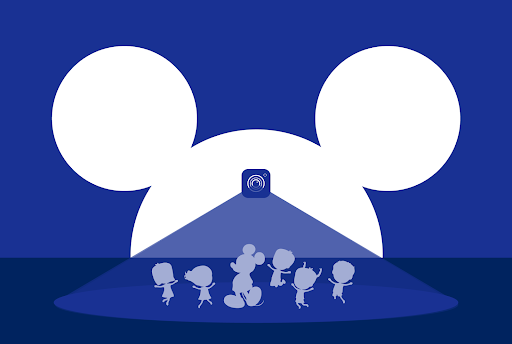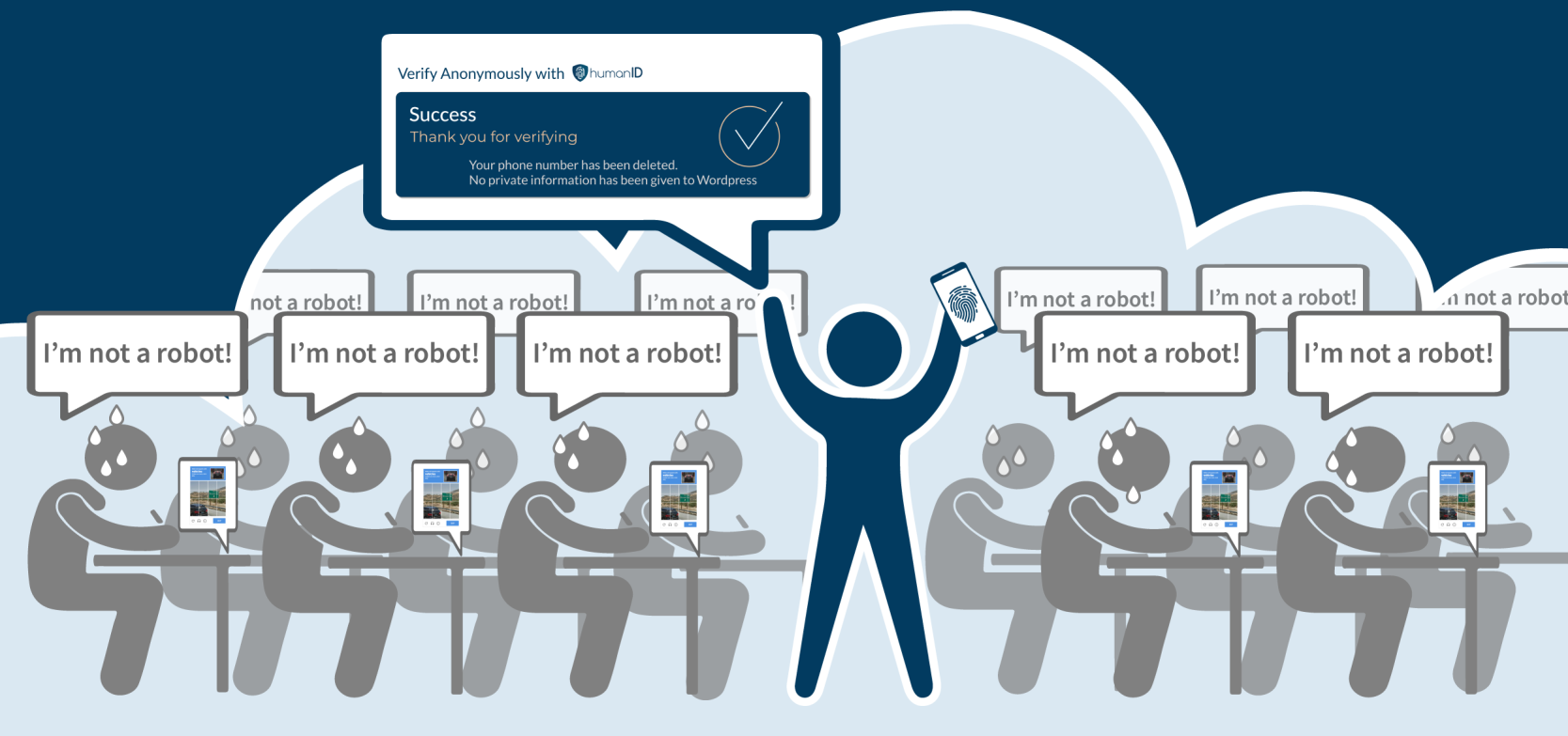Courts Force Disney to Stop Collecting Children’s Data 🧙
May 2021 Newsletter

Greetings,
This past month saw promising headway made in the privacy space. There were critical steps taken in AI governance, a settlement by a big-name company regarding the handling of children’s data, and attempts by an internet giant to revise its website tracking technology. And we’re using the humanID tech to develop a simple, painless alternative to CAPTCHAs. Read on for the details.
Only have a minute? Here’s a TL;DR:
![]() humanID is launching a new product: a CAPTCHA alternative
humanID is launching a new product: a CAPTCHA alternative
![]() The EU is taking steps towards regulating AI
The EU is taking steps towards regulating AI
![]() Tech giant Disney got sued for collecting data on children
Tech giant Disney got sued for collecting data on children
![]() Google is protecting its bottom line with a superficial privacy improvement
Google is protecting its bottom line with a superficial privacy improvement
![]() Broadband companies on one side and a 19-year-old college student on the other sent the FCC millions of fake comments in advance of their 2017 decision on net neutrality
Broadband companies on one side and a 19-year-old college student on the other sent the FCC millions of fake comments in advance of their 2017 decision on net neutrality
 humanID CAPTCHA
humanID CAPTCHA
Nobody likes CAPTCHAs. And the hassle keeps worsening as computers get better at beating them. humanID CAPTCHA is our solution to replace traditional CAPTCHA.
![]() It works the same way as our Social Login, using phone #’s to authenticate people.
It works the same way as our Social Login, using phone #’s to authenticate people.
![]() humanID CAPTCHA will help us reach our goal of a bot-free and anonymous internet faster!
humanID CAPTCHA will help us reach our goal of a bot-free and anonymous internet faster!

 Industry News
Industry News
An AI regulation framework was proposed by the European Commission marking progress towards robust, clear-cut AI governance practices and standards.
![]() The framework classifies AI technologies under three levels of risk – unacceptable, high, and low – requiring varying degrees of regulation.
The framework classifies AI technologies under three levels of risk – unacceptable, high, and low – requiring varying degrees of regulation.
![]() Technology with unacceptable risk (infringing on individuals’ fundamental rights and security) would be banned. At the other end of the spectrum, technology classified as low risk would have little regulation (and hopefully encourage responsible innovation).
Technology with unacceptable risk (infringing on individuals’ fundamental rights and security) would be banned. At the other end of the spectrum, technology classified as low risk would have little regulation (and hopefully encourage responsible innovation).![]() If accepted by EU members, this framework would set a precedent for AI governance worldwide.
If accepted by EU members, this framework would set a precedent for AI governance worldwide.

Disney and ad-tech companies settled a lawsuit for mishandling minors’ data, establishing accountability and key privacy expectations in the children’s app space.
![]() Popular children’s apps – like “Subway Surfers” with a staggering 1.5 billion downloads – used tracking technology to monitor children, collect their personal data, and build profiles for ad microtargeting without parental consent.
Popular children’s apps – like “Subway Surfers” with a staggering 1.5 billion downloads – used tracking technology to monitor children, collect their personal data, and build profiles for ad microtargeting without parental consent.
![]() Quotable: “This is going to be the biggest change to the children’s app market that we’ve seen that gets at the business models.” — Josh Golin, the executive director of Campaign for a Commercial-Free Childhood, a nonprofit in Boston
Quotable: “This is going to be the biggest change to the children’s app market that we’ve seen that gets at the business models.” — Josh Golin, the executive director of Campaign for a Commercial-Free Childhood, a nonprofit in Boston

Google begins revamping website tracking technologies, replacing third-party cookies with ‘Federated Learning of Cohorts’ (FLoC). Google claims FLoC better balances user privacy with data-driven ad business models. Critics say the privacy improvements are questionable.
![]() FLoC uses personal data to assign individuals to “cohorts” based on shared interests. Ad-tech companies will only have access to individuals’ “Cohort IDs.” Personally identifying information is not disclosed, ensuring people’s anonymity while also allowing for ad microtargeting.
FLoC uses personal data to assign individuals to “cohorts” based on shared interests. Ad-tech companies will only have access to individuals’ “Cohort IDs.” Personally identifying information is not disclosed, ensuring people’s anonymity while also allowing for ad microtargeting.
![]() Critics say Google is prioritizing personalized ads over real privacy, and are worried FLoC’s anonymization isn’t enough to prevent users from being identified
Critics say Google is prioritizing personalized ads over real privacy, and are worried FLoC’s anonymization isn’t enough to prevent users from being identified
![]() Google is currently testing FLoC on users. See if you’re being “FLoCed” here.
Google is currently testing FLoC on users. See if you’re being “FLoCed” here.

The U.S. broadband industry flooded the FCC with millions of fake net neutrality comments, helping push the watershed 2017 decision in their favor.
![]() The FCC regularly reviews public comments on key policy issues before taking action
The FCC regularly reviews public comments on key policy issues before taking action
![]() The U.S. broadband industry flooded the FCC with millions of fake net neutrality comments, helping push the watershed 2017 decision in their favor.
The U.S. broadband industry flooded the FCC with millions of fake net neutrality comments, helping push the watershed 2017 decision in their favor.
![]() Broadband providers paid 3 marketing companies $4.2 million to generate 8.5 million comments opposing net neutrality
Broadband providers paid 3 marketing companies $4.2 million to generate 8.5 million comments opposing net neutrality![]() 9.3 million comments supporting net neutrality were generated by a 19-year-old college student
9.3 million comments supporting net neutrality were generated by a 19-year-old college student![]() The New York state attorney general’s office fined the marketing companies $4.4 million
The New York state attorney general’s office fined the marketing companies $4.4 million

humanID CAPTCHA in Action!

Our Team
humanID is diverse and growing! People from 8 countries and 37 universities contribute to humanID’s mission, and we’re actively recruiting for our Fundraising and Sales teams for the summer. Check out open internship positions and apply here.


Can you support us in our mission to fix the internet? Donate today.
This newsletter was brought to you by Julia Manetta, Sherry Liang, William McConnell, Bikram Khaira, Emma Spahic.
Published May 19, 2021
